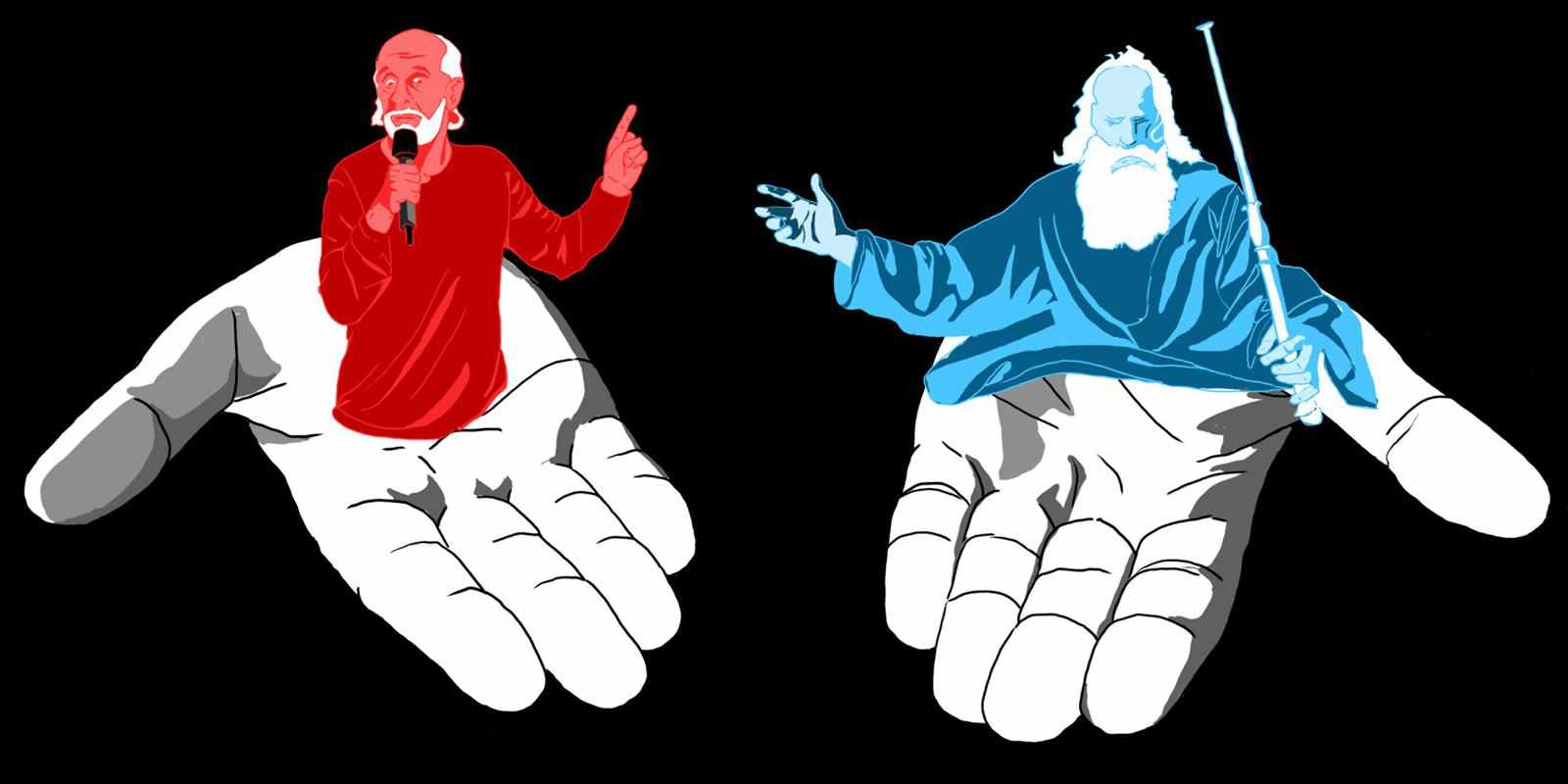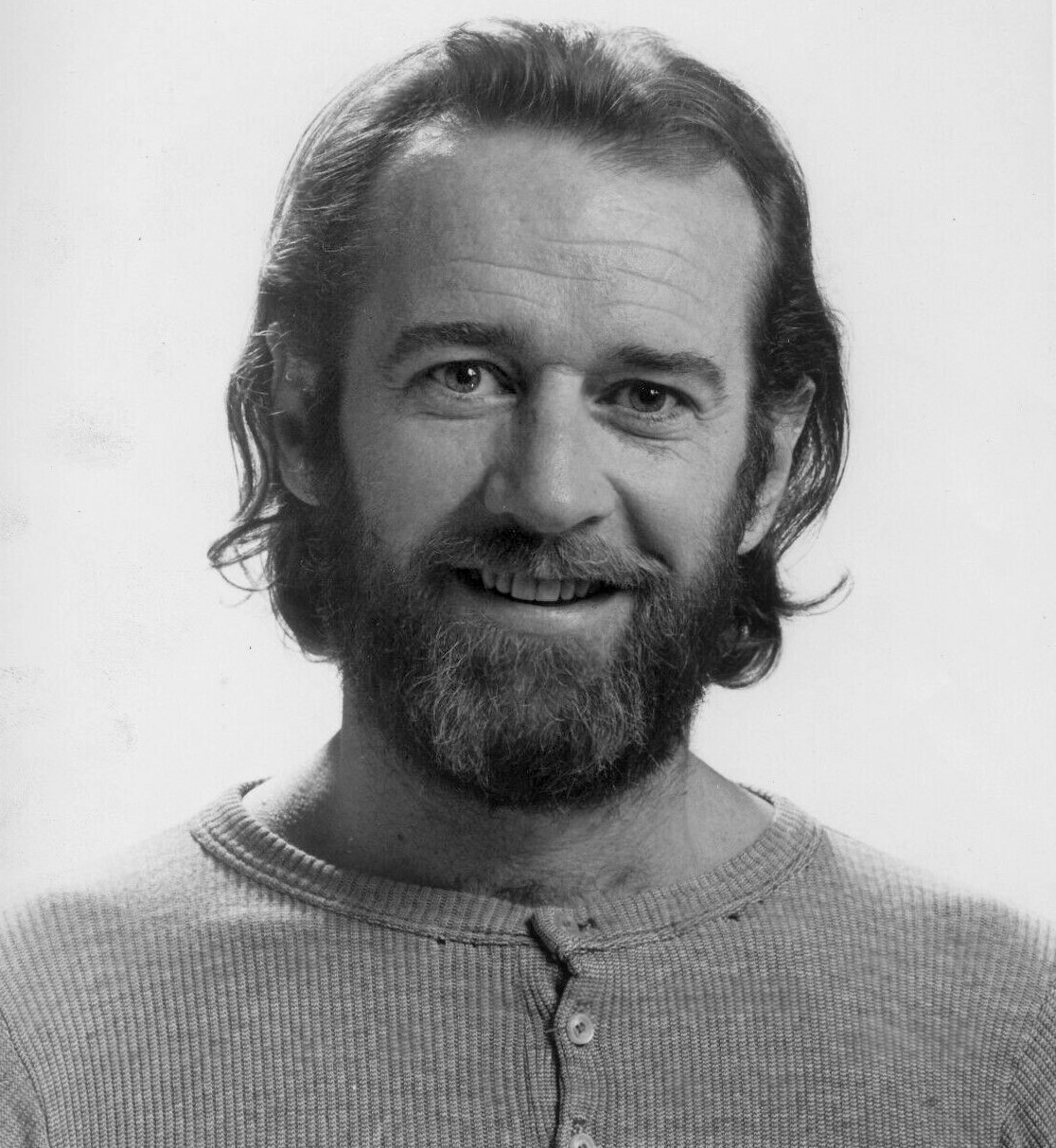
In my last post, I wrote about how I started thinking about the concept of god and how it sent me down a path I never imagined. It was a process that continued for many years and involved rethinking all aspects of my life while incorporating everything new that starting catching my interest. In this post, I'll go through my varying positions about the concept of god before I arrived at my stand today. But before I do, I want to elaborate on my religious beliefs and practices before I started questioning it all.
Early Life
I was born into a Hindu Brahmin family to parents who were fairly devout but rarely imposing as far as religion was concerned. They tried to get my brother and I to read the Bhagavad Gita and learn its stories, but reading was never my strong suit and I didn't really go too far. The same was the case with other ancient epics, The Ramayana and The Mahabharata, where I rather preferred watching their televised depictions for entertainment over a dedicated study. I liked visiting local temples and admiring the decorations of the idols there. My parents rarely insisted I believe in our religion devoutly, despite belonging to the "priestly" caste of Hinduism. The main driver of our family was real-life problems, and this didn't change much after my father passed away when I was 9 years old. My mother became more focused on managing our family, while I struggled through middle school and all the challenges it provided.
After I got the Sacred Brahmin Thread via a traditional ceremony, I was told I had to perform many religious duties, but it was never something I really liked doing and quickly abandoned after a few weeks. The lack of observable consequences or feedback for any of my religious actions gave me a feeling that it simply didn't work. What I had learnt until then had very little impact on how I treated the people around me, how I saw the world or my place within it. I lived my life based on more universal values like honesty, equality, humility and a few other ones.
The First Steps
Early into my journey of rediscovering god & religion, I knew that I had to start with a clean slate. I had to set aside my feelings about Hinduism so that I can counter my bias for the religion I was born into and approach all possible gods & religions with an open mind. A few months into the process of relearning, though, it became pretty clear that disbelieving in god was the most reasonable position possible. Not only had I not seen, heard or experienced any god in any meaningful way, but the debates about god's existence made it quite easy to side with the atheist camp. The theist side always had convoluted, fallacious and nonsensical arguments, while the atheist side seemed simpler, logical and more accurately reflective of the world I could observe. Discussions about the Problem of Evil further solidified this position, and the propensity towards violence that always accompanied religion made it harder to justify. After months of consuming, processing and assimilating what that the New Atheist Movement offered, I was pretty comfortable calling myself an atheist, as far as the gods of the major world religions were concerned.
...or was I?
This new-found identity had lit a fire in my belly that naturally compelled me to get into debates and express my new opinions and test my new identity. I found myself on the internet again, debating people I knew thanks to music or football. I entered into them fairly confident of my position, but also being wary of being too arrogant and missing out on refining my understanding, or worse, turning into a "militant atheist" that occupied the other side of the extremist spectrum. The arguments were usually with Muslim or Christian believers, and they would sometimes offer new information to justify their side. But I would follow my logic, instinct and counter-arguments from fellow non-believers to strengthen my position. My trump card was offering a Hindu perspective to assert that their faith in their respective gods might be wrong all along. It sometimes worked, and sometimes didn't.
However, I did begin to question my stance as an atheist and wondered if I was really sure that god truly didn't exist. The self-critique that followed this further refined my stance, and I started to believe that agnosticism was the more reasonable belief. It was an honest position acknowledging my ignorance of all things I didn't know existed for sure, yet one where I was open to the possibility that god could exist, however likely it may be.
Is it settled now?
At this point, my thought process had diverged towards other aspects of my life. My existential crisis got me thinking about the nature of my existence, my social life, my personal relationships and purpose in life going forward. God had taken a back seat since I thought there wasn't a lot about the concept worth exploring. Yet I would frequently revisit the subject as it helped sharpen my critical thinking skills. I'd continue spending hours digging deeper into my views and trying to find new perspectives. Soon, I realised that all the arguments I made were based on assumptions about the definition of god that I couldn't be sure of any more. That god was all-powerful, all-knowing, all-loving and ever-present wasn't always stated explicitly in the major religions in the world, but rather assumed without any possibility of real-world validation. Most theists would make this leap and base their arguments upon these assumptions, but I realised that this leap in definition was one I couldn't honestly take. Other supposed attributes of god like timelessness and spacelessness made the question "does god exist?" entirely meaningless. The definition of "god" itself was ever-changing, ambiguous and incoherent, therefore all debate about "god" seemed ultimately meaningless. I soon found out that this position was called "ignosticism" and I started identifying as an ignostic, if anyone cared to dig deeper into my belief in god.
Perspective shift
Although my position had evolved through my self-criticism in pursuit of the most reasonable position possible, I knew there was more to the subject that had not been addressed yet. I knew, for example, that simply telling a believer that "god" doesn't have a coherent definition or that it's logically impossible wasn't enough to make them stop believing and become an atheist too. Their faith simply bypassed the question of the existence of god. I had also read a book titled "Why We Believe In God(s)?" by J. Anderson Thomson, where my key takeaway was that humans are hardwired to seek out god or create them if they didn't exist in their society. All this while, I had been thinking about the 'concept' of god and its logical validity, but the 'phenomena' of god was something far more important and one I hadn't observed before. It didn't matter what the definition of god according to Hinduism, Islam, Christianity or any other religion was. What mattered was that human beings across different parts of the world in different points in time had all created their own mythical entities, but for very similar reasons. The concept of god may be meaningless, but there was a meaning behind our actions, and that was worth exploring.
During this journey, I had tried to read holy books like the Bible, the Quran, and the Gita, but I had quickly given up reading them in their entirely. I realised not only that it would take me forever to finish them all, but even if I did, I may not be closer to understanding why people on the ground still believed in them. I knew that this straightforward approach wouldn't yield the best results. What I did find more useful in that regard was to hear believers ask about aspects of the world that would be left unanswered if god was taken out of the equation. Questions like "if god doesn't exist, where does life come from?" or "...how do we know what is right or wrong?" cut through the clutter like a hot knife through butter. They narrowed it down to the human needs that make them crave for an answer and shed light on the divine hooks that sunk deep into their psyche.
It's starting to make real sense now
Once I started to see god & religion from the perspective of human needs, everything started falling into place. Incoherent definitions, unreliable holy books, contradictory verses or extraordinary claims were no longer worthy of the attention everyone gave them. They seemed like intellectual dead-ends that never took the issue forward to where they should go. Looking at it, however, from the lenses of human needs helped me redefine "god" and "religion" in a way that not only was reasonable, but also paved the way for what should come in the future. I felt like I had finally arrived at the heart of the issue, and pivoting the conversations in this way might just help us come up with a solution that may one day improve our situation and free us from our dependency on religion.
In my next post, I will write about my current views on god & religion, why they are a problem and why we need to seek something better. If you enjoyed reading this and would like to be updated on future posts, follow my profile to get notified.



Write a comment ...